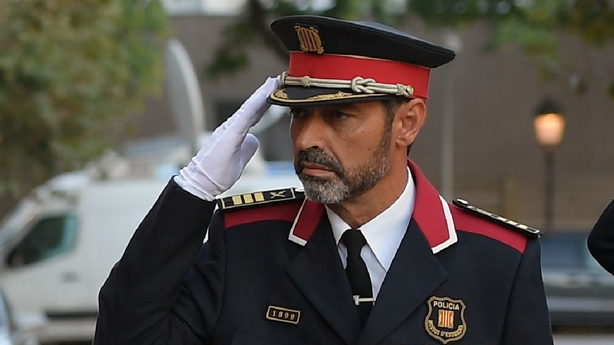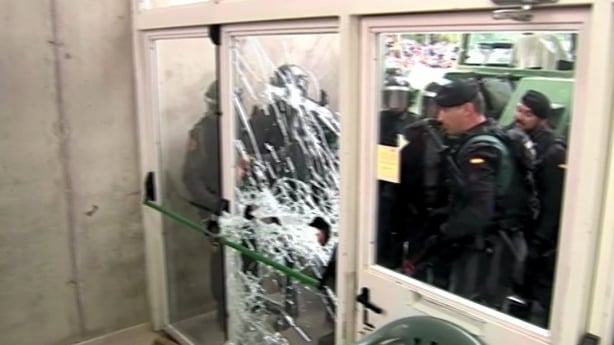Catalan regional leader Carles Puigdemont has said he was in favour of mediation to find a way out of the Catalan crisis but that the Spanish government had not accepted it.
"This moment calls for mediation. We have received various offers in the last hours and we will receive more. All of them know I am ready to start a mediation process," he said in a televised address.
"I will repeat it as many times as necessary: dialogue and agreement are part of the political culture of our people. However, the state has not given any positive answer to those offers," he said.
The Catalan parliament is expected to unilaterally declare independence from Spain next Monday after a referendum that the Spanish government and courts have declared illegal.
"I am sure that in the next few days we will show the best of our country when the institutions of Catalonia will have to apply the results of the referendum," Mr Puigdemont said.
The Spanish government issued a statement following Mr Puigdemont’s remarks saying if he wants talks or mediation with the central government over the region's future, he first needs to respect the law.
"If Mr Puigdemont wants to talk or negotiate, or wants to send mediators, he know perfectly what he first needs to do: go back to the law," a statement from Prime Minister Mariano Rajoy’s office said.
Earlier today the European Commission Vice President called on both sides to keep all lines of communications open, in order to find a solution to the current impasse.
Speaking in the European Parliament, Frans Timmermans reiterated the commission’s view that under the Spanish constitution, Sunday's vote was not legal.
Mr Timmermans said the regional government of Catalonia had ignored the law by holding the referendum, and he said the matter was an internal one for Spain, which had to be dealt with in line with constitutional order of Spain.
The Commission Vice President said it did not change the fact that everyone saw saddening images on Sunday.
"Violence doesn't solve anything in politics," he said.
He also said it was the duty of any Government to uphold the rule of law and sometimes that requires the "proportionate use of force".
Mr Timmermans said while it was understandable that people wanted to express their views, "one opinion is not more valuable than another because it is expressed more loudly".
Meanwhile, a Spanish judge has placed Catalonia's regional police chief under judicial investigation for sedition over his handling of unrest last month sparked by the region's contested independence drive.

The National Court in Madrid this morning summoned Josep Lluis Trapero and three other suspects to a hearing on Friday "in a case of sedition," said a court spokesman, who asked not to be named.
Catalonia's regional police have been accused of failing to rein in pro-independence protesters.
Mireia Boya, a Catalan lawmaker from the pro-independence Popular Unity Candidacy (CUP) party, said on Twitter that a declaration of independence would follow a parliamentary session on Monday to evaluate the results of the vote to break away.
"We know that there may be disbarments, arrests ... But we are prepared, and in no case will it be stopped," she said.
Ambassador says vote was illegal from outset
Meanwhile, Spain's Ambassador to Ireland has said nobody disputes the right of voters to vote, but that the referendum in Catalonia was illegal from the beginning.
Speaking on RTÉ's Morning Ireland, José María Rodríguez-Coso said that a referendum is legal only if agreed in the parliament.

Addressing the response of police to people voting, the ambassador said: "Nobody can accept, nobody can consider these images.
"But the thing is, that although the images shown may give a different picture, fortunately the police intervention has been limited to some very specific places and very concrete situations."
Mr Rodríguez-Coso said it was now important to find a path to reconciliation.
"The important thing now, and it has to be clear, is that we are facing a very very dramatic moment, an historical moment, in which there are deep emotional trenches and in which we have to save them and you have to find a path to reconciliation."
Journalist Paddy Woodworth discusses the situation in Catalonia

